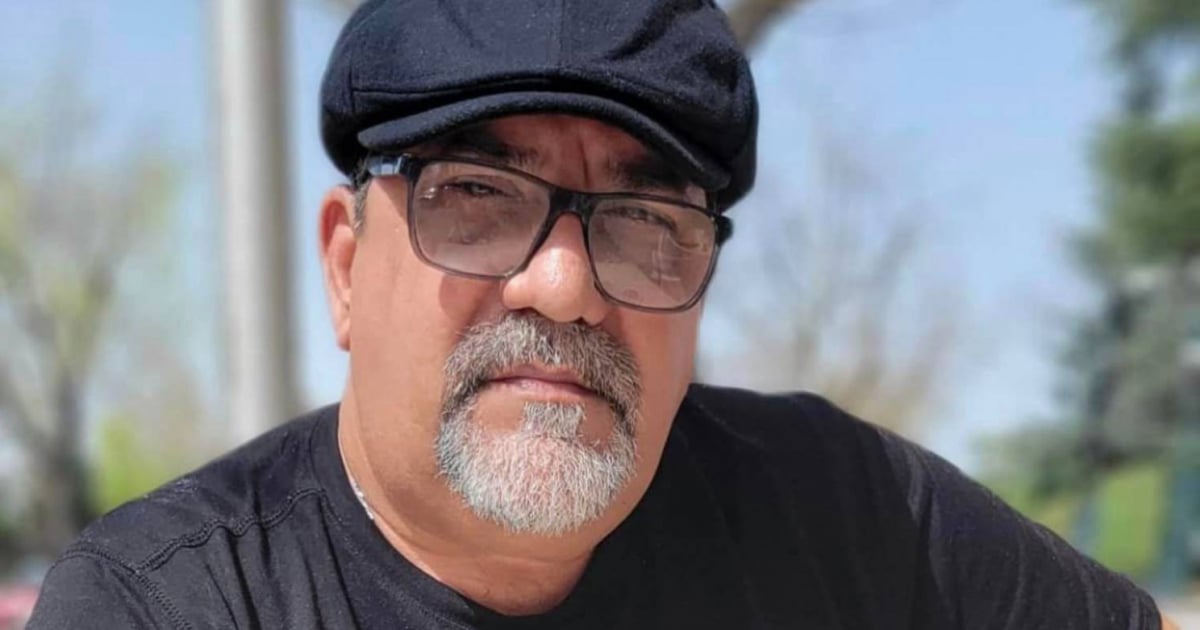
Cuban comedian Otto Ortiz recently expressed his outrage on social media over the prolonged wait for the National Insurance Company (ESEN) to replace his vehicle, which became unusable in an accident—a process that has already taken five years.
"In a month, I will have waited five years for the ESEN, five years dreaming of the famous reschedule," Ortiz commented on his Facebook profile, hinting at the desperation many Cubans feel when dealing with the bureaucracy of such institutions.
Although Ortiz mentions that "this isn't relevant right now," the publication quickly shifts to another ordeal related to gasoline, a commodity that is becoming increasingly scarce in the country.
According to his account, he was loaned a car to get around, but soon ran out of gas: “I started calling friends, the rescue team, and no one was able to help,” the comedian wrote, highlighting the precariousness of the situation while maintaining his signature humor.
After two hours of waiting, one of his friends, Albertico, finally arrived, but, as is often the case on the island, he also didn’t have any gas. Despite the difficulty, another friend, "Juan Karlos el Gordo," whom he referred to as a "Cuban warrior," managed to find fuel and save the night.
The anecdote ended in a celebration among friends that, according to Ortiz, encapsulates the spirit of Cubans: to laugh and share, even in the face of adversity.
"After a few whiskies, we said our goodbyes and each went our separate ways, all happy, all Cubans," he wrote with his characteristic humor.
The story, though told lightly, reflects two serious issues affecting daily life in Cuba: the inefficiency of state institutions and chronic fuel shortages.
Both themes are recurrent in the publications of Otto Ortiz, who employs humor to highlight the realities that Cubans face every day.
The Cuban comedian has gone through a real ordeal with ESEN after signing a contract to insure his car, which was damaged in an accident, and has yet to receive a resolution.
In 2023, for example, he harshly criticized the state entity for announcing his intention to sue it for breaching their agreement.
He also accused the entire management team of “making agreements they cannot fulfill” and of merely “meeting with their dissatisfied clients to buy time and prolong their suffering.”
"In a country where importing cars is no longer a crime, where a significant number of cars are taken out of rental services for an entity that dismantles them to sell parts or provides replacements, where parking lots are filled with unused cars, it is absurd that this company, ESEN, continues with the same rhetoric from years ago without offering a concrete response," he questioned on his Facebook.
In February, the comedian reacted with indignation to the government-backed program Mesa Redonda, which discussed insurance in Cuba.
Frequently Asked Questions about Otto Ortiz and the Situation in Cuba
Why does Otto Ortiz criticize the National Insurance Company (ESEN)?
Otto Ortiz criticizes ESEN for its inefficiency and lack of response regarding the replacement of his vehicle, a process he has been waiting on for five years. This situation highlights a recurring issue in Cuba, where bureaucracy and the ineffectiveness of state institutions are a source of frustration for many citizens.
What issues does Otto Ortiz's story reflect regarding access to gasoline in Cuba?
The story of Otto Ortiz illustrates the chronic fuel shortage in Cuba. Despite borrowing a car, he quickly found himself without gasoline, reflecting the precariousness and daily challenges that Cubans face due to the lack of basic resources like fuel.
How does Otto Ortiz use humor to address social issues in Cuba?
Otto Ortiz uses humor as a tool to highlight and criticize Cuban reality. Through anecdotes and jokes, such as his experience with ESEN and the gasoline shortage, Ortiz manages to reflect the difficulties faced by Cubans, employing comedy to provide a critical yet entertaining perspective on the situation in the island.
What impact does Otto Ortiz's critique have on the public perception of Cuban institutions?
Otto Ortiz's critique highlights the distrust and frustration of Cubans towards state institutions. By sharing his experiences and public denunciations, Ortiz not only expresses his personal dissatisfaction but also connects with an audience that shares his sentiments, contributing to a more negative perception of these institutions.
Filed under: